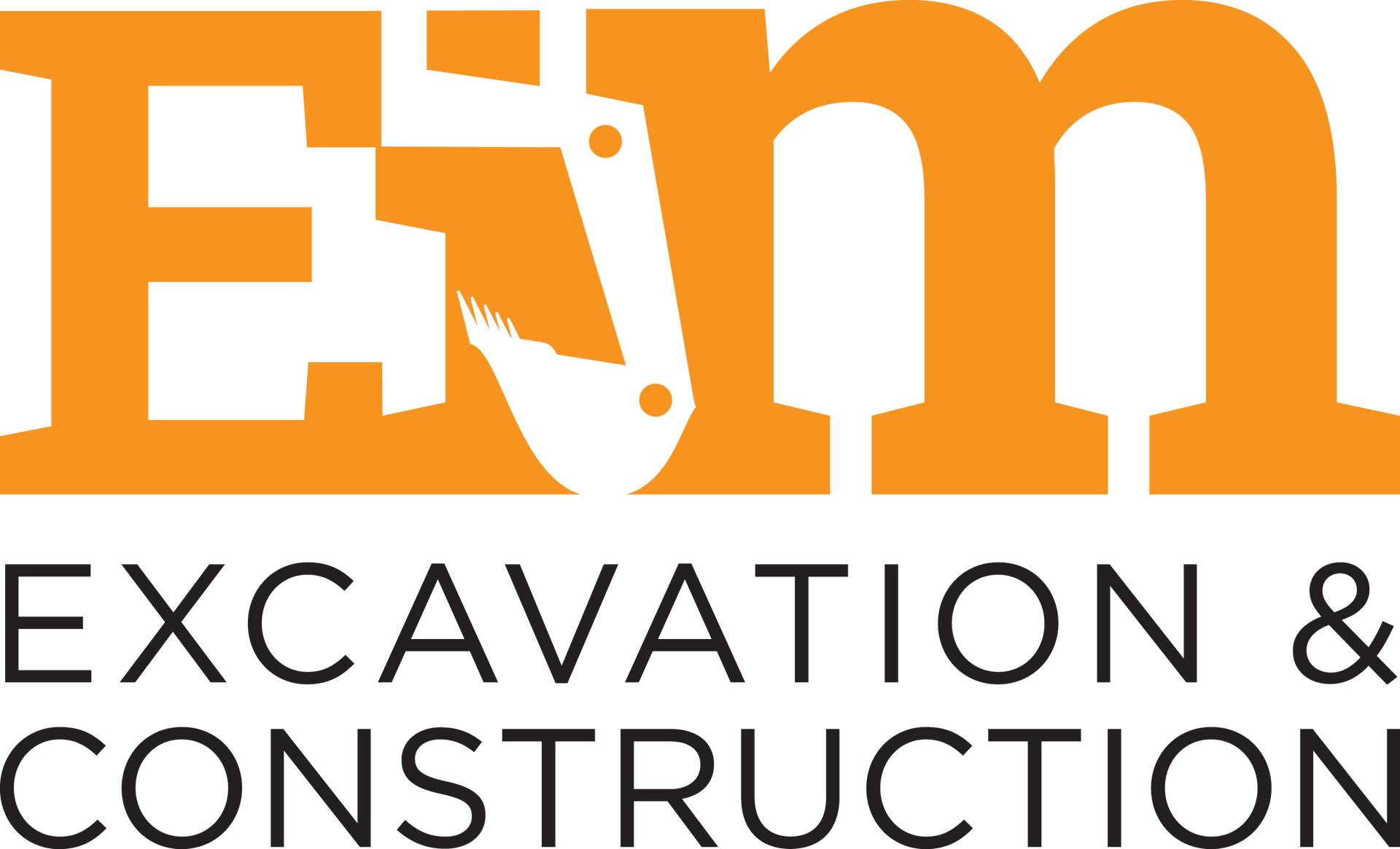Excavating Contractors: Essential Selection Guide
What You Need to Know About Excavating Contractors
When you're planning a construction project in Austin, Texas, or anywhere else, finding the right excavating contractors can make or break your timeline and budget. After over 20 years in construction and nearly two decades running Earth in Motion, I've seen too many projects go sideways because someone chose the wrong excavation partner. Let me walk you through what you really need to know about this industry and how to avoid the common pitfalls that cost property owners thousands of dollars.
The excavation industry has grown into a massive $118 billion market with nearly 235,000 contractors across the United States. That sounds like plenty of options, but here's the reality I've learned from my military service and construction experience: not all excavating contractors are created equal. The difference between a skilled professional and someone just moving dirt around can be the difference between a project that runs smoothly and one that becomes a nightmare.
Understanding What Modern Excavating Contractors Really Do
When most people think about excavation work, they picture someone with a backhoe digging a hole. That's like saying a surgeon just cuts people open. Today's excavating contractors handle complex projects that require serious technical knowledge and specialized equipment.
At Earth in Motion, we handle everything from site preparation and foundation excavation to underground utility installation and stormwater management systems . One of my favorite projects involves building custom ponds, which requires understanding soil composition, water flow patterns, and environmental regulations. You can't just dig a hole and hope for the best.
The scope of services has expanded dramatically over the past two decades. Modern excavating contractors need to understand:
- Soil stabilization techniques for different ground conditions
- Environmental compliance for stormwater runoff and erosion control
- Underground utility coordination to avoid costly accidents
- Grading and compaction standards for long-term stability
- Hazardous material identification and proper disposal
I remember working on a project in Colorado where the soil conditions were completely different from what we typically see here in Texas. The high clay content and freeze-thaw cycles meant we had to adjust our entire approach to ensure the foundation would remain stable. That's the kind of adaptability you need from your excavation team.
The Technology Revolution in Excavation
The industry has embraced technology in ways that would surprise most property owners. GPS-guided equipment allows us to achieve precision that was impossible just ten years ago. We use 3D modeling to plan projects before we ever break ground, which helps identify potential problems and keeps your project on budget.
Environmental responsibility has also become a major focus. We now recycle concrete and asphalt materials whenever possible, and we use advanced erosion control methods to protect surrounding areas. This isn't just good for the environment – it often saves our clients money on disposal fees and materials.
Licensing and Insurance: What You Must Verify
Here's where I see property owners make their biggest mistakes. The licensing requirements for excavating contractors vary dramatically depending on your location, and many people assume their contractor has proper coverage when they don't.
In Texas, excavation work often requires multiple types of licensing depending on the project scope. Municipal permits, state certifications, and specialized licenses for activities like underground utility work all come into play. When I started Earth in Motion in 2005, I made sure we obtained our Service-Disabled Veteran-Owned Small Business certification, but that's just one piece of the puzzle.
Questions you must ask every potential contractor:
- Do you have current general liability insurance?
- Are you bonded for this type of work?
- What licenses do you hold for this specific project?
- Who handles permit acquisition and utility coordination?
- What happens if underground utilities are damaged?
I've seen contractors disappear after hitting a gas line or water main because they didn't have proper insurance coverage. The property owner gets stuck with massive repair bills and project delays. Don't let that be you.
Safety Standards That Actually Matter
Excavation work is inherently dangerous. We're dealing with heavy equipment, unstable soil conditions, and underground hazards. The excavating contractors you choose should have documented safety protocols and training programs.
At Earth in Motion, our military background instilled a safety-first mentality that carries over into every project. We conduct daily equipment inspections, maintain detailed safety records, and ensure our team stays current on OSHA requirements. Your contractor should be able to explain their safety procedures without hesitation.
How to Evaluate Experience and Expertise
Experience matters in excavation work, but not all experience is the same. A contractor who's spent 20 years doing basic residential grading might not be qualified for complex commercial site development or specialty projects like pond construction.
When evaluating excavating contractors, dig deeper than just years in business. Ask about specific project types, challenging soil conditions they've handled, and problem-solving examples. I always tell potential clients about the time we had to excavate for a foundation in Austin where we encountered unexpected rock formations. It required specialized equipment and creative problem-solving to stay on schedule.
Red flags to watch for:
- Contractors who can't provide local references
- Vague answers about equipment ownership versus rental
- Reluctance to discuss previous challenging projects
- No clear process for handling change orders or unexpected conditions
- Pressure to sign contracts immediately
The Equipment Factor
Equipment ownership versus rental tells you a lot about a contractor's stability and commitment to quality. At Earth in Motion, we own our equipment because it gives us better control over maintenance, availability, and project scheduling.
Different projects require different machinery. Site clearing needs different equipment than precision grading or pond excavation. Your contractor should be able to explain why they're using specific equipment for your project and have backup plans if something breaks down.
Understanding Project Costs and Avoiding Surprises
Excavation pricing depends on numerous factors that many property owners don't consider upfront. The size and depth of excavation obviously matter, but soil conditions, site accessibility, environmental requirements, and timeline constraints all impact the final cost.
In my experience, the cheapest bid usually becomes the most expensive project. Low-ball estimates often miss critical elements or make unrealistic assumptions about site conditions. I'd rather give you an honest assessment upfront than surprise you with change orders later.
Cost factors that affect every excavation project:
- Soil type and stability conditions
- Proximity to existing structures and utilities
- Environmental compliance and permit requirements
- Equipment mobilization and site access
- Material disposal and hauling distances
- Weather delays and seasonal considerations
I always recommend getting a detailed written estimate that breaks down these factors. It helps you understand what you're paying for and makes it easier to evaluate different contractors fairly.
Managing Change Orders and Unexpected Conditions
Even with the best planning, excavation projects sometimes encounter unexpected conditions. Maybe you hit bedrock where the soil survey showed clay, or discover old foundations that weren't on any site plans. How your contractor handles these situations separates the professionals from the rest.
At Earth in Motion, we use our military project management experience to develop contingency plans before we start digging. We discuss potential scenarios with clients upfront and establish clear procedures for handling changes. This prevents disputes and keeps projects moving forward.
Environmental Considerations and Sustainability
Modern excavating contractors must understand environmental regulations and sustainable practices. This isn't just about following rules – it's about protecting your project from future liability and often saving money through efficient material handling.
Stormwater management is a perfect example. Proper grading and drainage design during excavation prevents erosion problems that could cost thousands to fix later. We design our projects to work with natural water flow patterns rather than fighting them.
Soil export and import also requires careful planning. Sometimes we can balance cut and fill on-site, which saves on hauling costs. Other projects require importing specific soil types for proper compaction and drainage. An experienced contractor will evaluate these options during the planning phase.
Working with Local Regulations
Every municipality has different requirements for excavation work. Austin has specific rules for tree protection and stormwater management that differ from other Texas cities. Your contractor should be familiar with local regulations and have established relationships with permitting offices.
I've seen projects delayed for weeks because contractors didn't understand local requirements or tried to shortcut the permit process. It's always better to do things right the first time.
The Future of Excavation Contracting
The excavation industry continues evolving with new technologies and changing client expectations. GPS-guided equipment is becoming standard, and 3D modeling helps us visualize projects before breaking ground. These tools improve accuracy and reduce waste, which benefits both contractors and property owners.
Environmental sustainability will continue growing in importance. Clients increasingly expect contractors to minimize ecological impact through recycling programs, erosion control, and efficient material handling. At Earth in Motion, we've embraced these practices because they align with our values and often provide cost savings.
The industry is also seeing more specialization. General excavation skills remain important, but projects increasingly require specific expertise in areas like environmental remediation, complex utility work, or specialty applications like pond construction.
Technology Integration and Precision
Modern excavation relies heavily on technology for precision and efficiency. GPS systems help us achieve exact grades and elevations, while 3D modeling allows clients to visualize finished projects before we start work. These tools reduce errors and change orders, which keeps projects on budget and schedule.
Equipment monitoring systems also help us maintain machinery more effectively and identify potential problems before they cause delays. This technology integration separates professional contractors from those still operating with outdated methods.
Making the Right Choice for Your Project
Choosing the right excavation contractor requires looking beyond the lowest bid. Consider experience with similar projects, safety records, equipment capabilities, and communication skills. A contractor who takes time to understand your specific needs and explain their approach is usually worth the investment.
Don't rush the decision. Good excavating contractors are often booked weeks or months in advance, especially during peak construction season. Plan ahead and start your contractor search early.
Remember that excavation work forms the foundation for everything else in your project. Poor excavation can cause problems for years, while quality work creates a stable base for long-term success. Whether you're building a custom home, developing commercial property, or creating a beautiful pond feature, the right excavation contractor makes all the difference.
After two decades in this business, I've learned that success comes from combining military discipline, construction expertise, and genuine commitment to client satisfaction. When you're ready to move forward with your excavation project, choose excavating contractors who demonstrate these same values and have the experience to deliver results you can count on.
Frequently Asked Questions About Excavating Contractors
Are you licensed and insured for excavation work in Austin, Texas?
Yes, Earth in Motion maintains all required licenses and comprehensive insurance coverage for excavation work throughout Austin and central Texas. We carry general liability insurance, bonding for larger projects, and specialized coverage for underground utility work. As a Service-Disabled Veteran-Owned Small Business, we've maintained these certifications since 2005. I always provide proof of current licensing and insurance before starting any project because protecting both our clients and our business is non-negotiable.
What factors determine the cost of my excavation project?
Several key factors influence excavation costs, and I evaluate each one during our initial site assessment. Soil conditions make the biggest difference - rocky terrain or high clay content requires different equipment and techniques than sandy soil. Site accessibility affects equipment mobilization costs, while proximity to existing structures or utilities requires more careful work. Project depth and scope, environmental compliance requirements, and material disposal needs all impact the final investment. I provide detailed written estimates that break down these factors so you understand exactly what drives your project cost.
How do you handle unexpected conditions during excavation?
Drawing from my military project management background, I develop contingency plans before breaking ground on any project. We discuss potential scenarios like encountering bedrock, discovering old foundations, or hitting unexpected utility lines during our initial planning phase. When surprises do occur, I stop work immediately, assess the situation, and present you with clear options and cost implications before proceeding. This approach prevents disputes and keeps your project moving forward safely. My experience with challenging conditions in both Texas clay and Colorado's freeze-thaw cycles helps me anticipate and manage these situations effectively.
What safety protocols do you follow during excavation work?
Safety is our top priority at Earth in Motion, influenced by my military background and 20+ years of construction experience. We conduct daily equipment inspections, maintain current OSHA certifications, and coordinate with utility providers to mark all underground lines before excavation begins. Our team uses proper shoring and bracing techniques for deep excavations, maintains emergency response plans, and ensures all personnel wear appropriate protective equipment. I personally oversee safety protocols on every job site because excavation work involves heavy equipment and potentially dangerous conditions that require constant vigilance.
Can you provide references from similar projects you've completed?
Absolutely. I'm proud to share references from clients throughout Austin and central Texas who've experienced our work firsthand on projects similar to yours. Whether you need site preparation, foundation excavation, pond construction, or utility installation, I can connect you with property owners who've seen our attention to detail and problem-solving abilities. These references include both residential and commercial projects, giving you insight into how we handle different scales and complexities of excavation work. My reputation in the Austin construction community has been built over nearly two decades of delivering quality results and standing behind our work.



